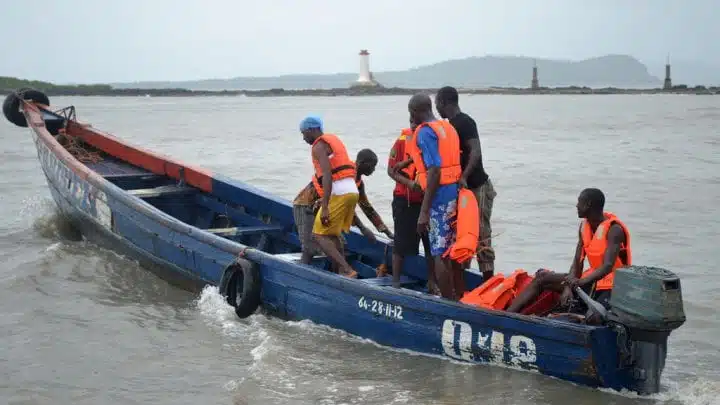Gist
Junior Pope: 10 Safety Tips For Boat Rides

Water transportation, integral to commuting in many regions, carries inherent risks that demand stringent safety measures and responsible practices.
The tragic incident involving the Nigerian actor Junior Pope Odonwodo, widely known as Junior Pope, poignantly reminds us of the potential dangers associated with negligence in water bodies.
Pope and three others met their untimely demise in a boating accident, an event that has cast a shadow over the entertainment industry and beyond.
Moments before the tragic incident, in a video he shared on Instagram, Pope highlighted the precarious nature of his journey. Without a life jacket, he expressed concern over the speed of the boat, emphasizing his responsibilities as a father to three children.
His caption, “See me lamenting… The risk we take to entertain you; crossing river Naija yesterday with no life jacket… Na wahoooooo… Who does that??” underscores the often overlooked risks individuals take, sometimes underestimating the dire need for safety precautions in pursuit of their duties or entertainment.
Pope was en route from a film set for “The Other Side of Life,” directed by Adamma Luke, emphasizing the risks actors and crew members face while filming in challenging locations.
In response to this tragedy, the Actors Guild of Nigeria (AGN), under the leadership of President Ejezie Rollas, has taken decisive steps to prevent similar incidents.
The AGN has suspended film productions that require cast and crew to work in riverine areas or involve boat rides, pending a review of safety protocols.
Furthermore, a temporary advisory has been issued against participation in projects associated with the director of the ill-fated movie, signalling a serious approach to ensuring the safety of its members.
Boating is a pleasurable activity that offers an excellent opportunity to explore the beauty of lakes, rivers, and seas. However, like any adventure, it comes with its risks. Ensuring safety on a boat ride is crucial for preventing accidents and enhancing the overall experience.
Naija News, in this article, highlighted 10 crucial safety tips for boat riders to ensure a safer experience:
1. Wear Life Jackets
Always wear a life jacket, regardless of your swimming capabilities. Life jackets are designed to keep you afloat in case of an emergency. Make sure the life jacket fits properly and is approved by relevant safety authorities.
2. Check Weather Conditions
Before setting off, check the local weather conditions. Look for any warnings about storms or high winds and plan your trip accordingly. It’s best to postpone or cancel your ride if bad weather is expected.
3. Follow a Pre-Departure Checklist
Prepare a pre-departure checklist to ensure that all safety measures are in place. This list should include checking the fuel levels, engine, and safety equipment like fire extinguishers, flares, and first-aid kits.
4. Understand Boating Rules
Familiarize yourself with the basic rules of boating, similar to learning the rules of the road. Knowing the right-of-way rules, speed limits, and signage will help prevent collisions and ensure a smooth journey.
5. Use a Kill Switch
A kill switch is a safety device that turns off the engine if the driver is thrown from the helm. Wearing a kill switch lanyard is a simple yet effective measure to prevent the boat from operating uncontrollably.
6. Avoid Alcohol
Operating a boat under the influence of alcohol or drugs is not only illegal but extremely dangerous. Save any alcoholic beverages for when you have safely returned to dry land.
7. Inform Someone About Your Plan
Always let someone onshore know about your boating plan. This includes your departure time, destination, and expected return time. In case of an emergency, rescuers will have a starting point.
8. Equip Your Boat With Communication Devices
Ensure your boat is equipped with a working communication device, such as a VHF radio or a fully charged mobile phone in a waterproof case. This is vital for calling for help in case of an emergency.
9. Take a Boating Safety Course
Consider taking a boating safety course, especially if you are a new boat owner or operator. These courses cover essential topics, including navigation, emergency procedures, and environmental laws.
10. Be Prepared for Emergencies
Know how to handle potential emergencies. This includes understanding how to use the safety equipment on board, knowing basic first aid, and being able to perform an emergency stop and evacuation if necessary.










